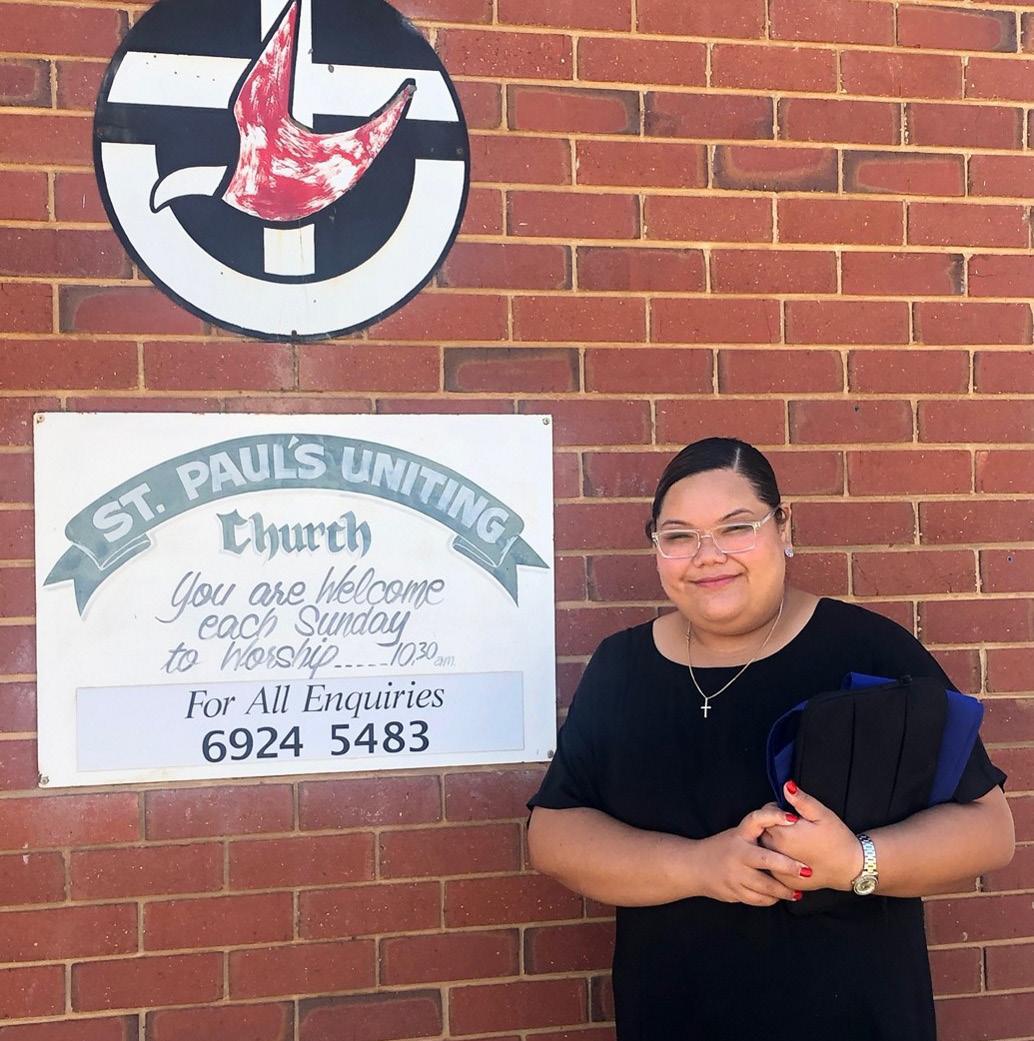
4 minute read
Death
Natasha He
Death is usually a taboo topic in the Tongan culture. It is not discussed or likely to be a subject of an open conversation although when it happens, all family dynamics rise to the occasion, each knowing their duty and fulfilling their role. It becomes a communal affair, where loved ones come together to show their respect and love for the deceased. During this time, families gather in numbers to pray, mourn and share a meal.
In this season of death, you will witness the Tongan Faa’i Kavei Koula (four Tongan golden pillars/ four core values) which consist of: Faka’apa’apa (respect), Mamahi’i Me’a (loyalty, commitment and perseverance), Loto tō (humility and generosity), and Tauhi Va (nurturing and maintaining healthy relationships). All of these are portrayed in all Tongan functions but is most evident during the mourning process. The burden then becomes lighter for the immediate family of the deceased. There is something unique about the way that death brings people together, where they are not just bound by relation but by the love of God. And that is what the Faa’i Kavei Koula represents, love, in all aspects and seasons. Christianity is grounded on service and compassion, which is the pure love of Christ.
Growing up, I was raised by three parents: my mother, my father and my maternal grandmother. She migrated to Australia in the late 1960’s as a widow, leaving behind her children in Tonga to seek a better life and opportunities, where she settled in Sydney’s Northern Beaches. She worked tirelessly to support her family along with trying to finance documentations for her children to migrate to Australia. She was successful in her hopes and hard labour, and it was a great reunion years later. My grandmother then lived on to witness all her five children marry and enjoyed all her twenty-two grandchildren and then ten great-grandchildren. She was independent, gracious and lived a Christ-like life. A God-fearing woman who showed compassion to the oppressed and valued everyone that she crossed paths within her life. She was the epitome of generosity, humility and perseverance.
Even in her old age of 80’s, she would join the church care takers on Saturday afternoons preparing for Sunday, then cooked a meal that they would enjoy afterwards. She was present at all our family milestones and we were dressed in her elite Tongan attire befitting the occasion. She was a lifelong member of my home church, Cecil Gribble Congregation- Dee Why Uniting Church. One day a minister asked her if she was interested in sharing her testimony or sharing her theological perspective from the pulpit, in which she replied “My calling in the church is to serve others through acts of service and charity. You will see me in the 4th row of pews at every service without fail. I will financially support any funding for our outreach programs, church activities or fundraisers for the disadvantaged. But I will not speak in front of the congregation, nor will I ever. Unfortunately, that is not my calling. And please do not ask me again”. When the minister shared this story, he exclaimed that this is exactly what she did, for the next four decades.
My grandmother passed away in July 2020. I experienced the greatest loss, my family’s matriarchal figure of immense importance. We never spoke of death
or the impact it would have on our family as a whole but more importantly as individuals. But like clockwork, all family dynamics rose to the occasion knowing their role and fulfilling their duty. From the person who welcomes people as they enter the house, to the person who led prayers, to the person directing people where to park safely and so on and so on. But there was a sense of emptiness that I just could not apprehend. With everyone present and being together, I captured a glimpse of life without my beloved grandmother and I recognised the reality of life after death. The void that this created was piercing. I was heart-broken at doorstop of death but I had a desire to create a new life in Christ.
As cliché as it may be, I found solace in Psalm 23. I had to accept that I am the sheep that needed care, protection and guidance. Because only then was I able to fully allow the Shepard to provide these for me. That I am not constrained by my emotions as he restores my soul, offering healing and renewing. That through this dark time, I take comfort in knowing that He guides me even through the reality of death and not to fear. That God is worthy as he never leaves us. If I allow Him to be my shepherd, I will encounter his goodness and mercy forever.
Death was confronting for me as it is the end of mortal life but joyous at the same time as it was the beginning of eternal life with Christ. Through death, our roots are love. A Christ-like love that is translative from Tongan traditions and rituals with no barriers or restrictions. In the midst of darkness, I uncovered light by seeking the opportunity for new life. A new life in a way to honour my grandmother and all her virtuous characteristics. All of which represent the Faa’i Tongan Kavei Koula.










